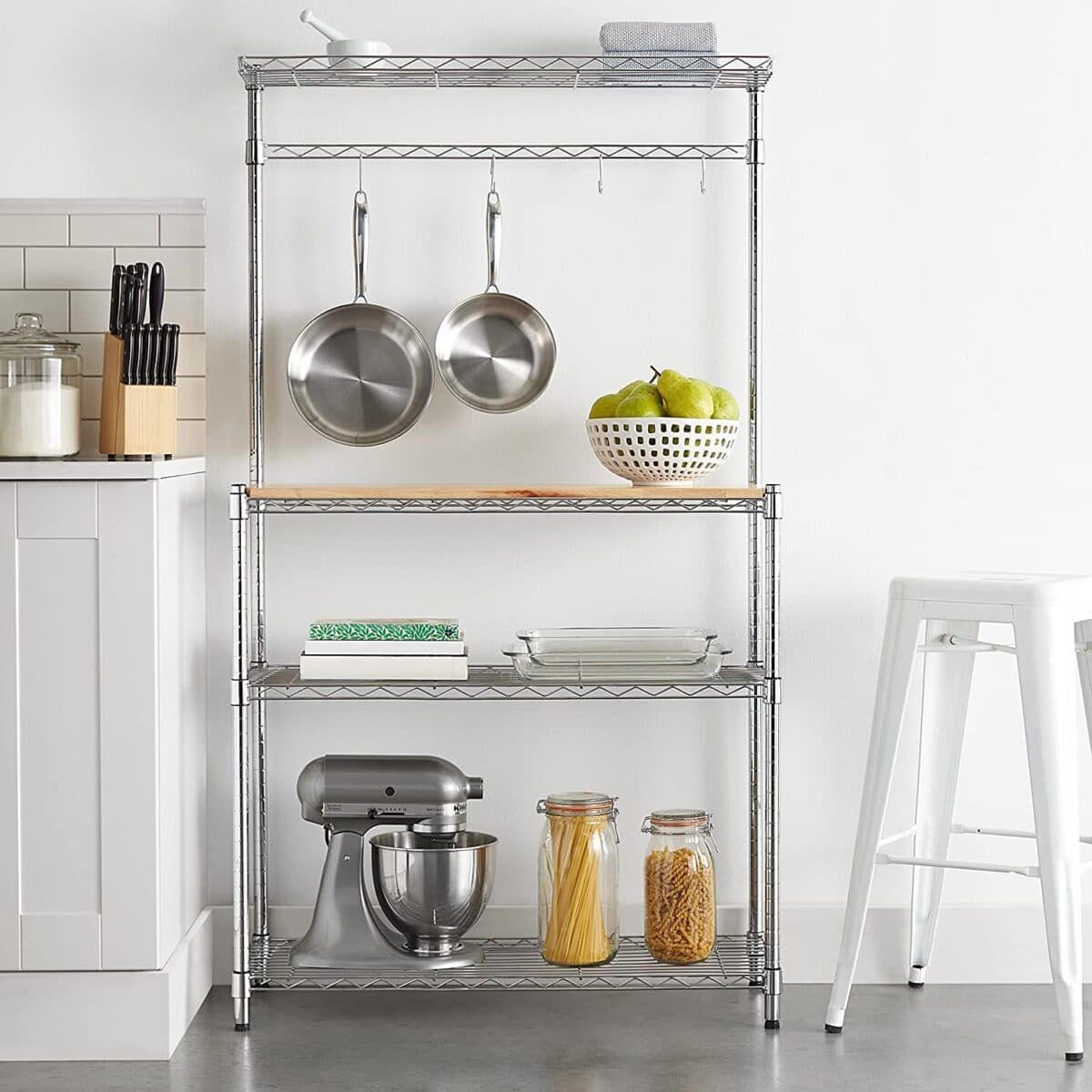Related: Kitchen Deals on Amazon, More Kitchen!, Home Storage Deals.
Assessing Your Needs: What You Really Need in a Kitchen
Before you start shopping for your new kitchen, it’s important to assess what you really need. Here are the five essential categories:
- Basic Kitchen Appliances: Start with a fridge, stove/oven, and microwave. If you have extra space and budget, consider adding a dishwasher or other appliances like a blender or food processor.
- Cookware Essentials: Invest in a good set of pots and pans, including a frying pan, saucepan, and Dutch oven. Also, consider getting a baking sheet and muffin tin.
- Plate, Cup, and Bowl Necessities: Start with a set of dishes that includes plates, bowls, and cups for at least four people.
- Essential Utensils: Get a set of utensils that includes a spatula, ladle, slotted spoon, and tongs. Don’t forget measuring cups and spoons!
- Required Gadgets: Consider getting a can opener, vegetable peeler, and colander. A good set of knives is also a must-have.
Storage Solutions: Finding Space for Everything
Storage is key to keeping your kitchen organized. Here are a few tips to help you maximize your space:
- Understanding Kitchen Storage Spaces: Take a look at your kitchen and identify your storage spaces, like cabinets, drawers, and shelves.
- Effective Storage Solutions for Small Kitchens: If you have a small kitchen, consider using vertical storage options like hooks and shelves. Use stackable containers to save space in your cabinets.
- Useful Organizing Tools and Tips: Consider using drawer dividers to keep utensils organized, and label your containers to avoid confusion.
Stocking the Pantry: Basic Pantry Staples
The pantry is the heart of the kitchen. Here are a few essentials to keep on hand:
- Essential Spices and Seasonings: Salt, pepper, garlic powder, and onion powder are basic staples. Consider getting other spices like cumin and paprika as well.
- Essential Oils and Sauces: Olive oil and vegetable oil are must-haves. Other sauces like soy sauce and hot sauce are also great to have on hand.
- Essential Baking Ingredients: Flour, sugar, baking soda, and baking powder are necessary for baking. Don’t forget vanilla extract!
- Essential Canned and Jarred Foods: Keep canned beans, tomatoes, and broth on hand for easy meals. Jarred pasta sauce and peanut butter are also great to have.
Fridge Essentials: What Belongs in the Fridge?
The fridge is where you’ll store your perishable items. Here are a few essentials:
- Essential Dairy Products: Milk, cheese, and yogurt are great to have on hand.
- Essential Fresh Produce: Keep a variety of fruits and vegetables in your fridge, like apples, carrots, and spinach.
- Essential Proteins: Get some eggs, chicken, and ground beef for easy meals.
Freezer Must-Haves: Stocking Up on Frozen Foods
The freezer is great for storing food for later. Here are a few essentials:
- Essential Frozen Vegetables and Fruits: Keep frozen peas, corn, and berries on hand for easy meals and smoothies.
- Essential Frozen Meats and Seafood: Get some frozen shrimp, salmon, and chicken breasts for easy protein options.
- Essential Frozen Prepared Foods: Frozen pizzas and burritos are great for quick meals when you don’t feel like cooking.
Shopping for Your Kitchen: Making Smart Choices
When shopping for your kitchen, keep these tips in mind:
- Budgeting for Kitchen Essentials: Make a list of what you need and set a budget before you start shopping.
- Tips for Smart Grocery Shopping: Shop for groceries when you’re not hungry, and stick to your list.
- Avoiding Wastage: Buy only what you need, and use up leftovers before they go bad.
Maintaining Your Kitchen: Keep it Clean and Well-Stocked
Keeping your kitchen clean and well-stocked is key to enjoying your new space. Here are a few things to keep in mind:
- Keeping Your Kitchen Clean and Tidy: Make a habit of cleaning as you go, and do a deep clean once a week.
- Maintaining Your Appliances and Tools: Follow the manufacturer’s instructions for maintaining your appliances, and clean your tools after each use.
- Replenishing Your Supplies: Keep an eye on your pantry and fridge, and restock as needed. Don’t forget to replace any tools or appliances that break or wear out.
That’s it! Enjoy Your New Kitchen
Stocking your first kitchen can be overwhelming, but with these tips, you’ll be well on your way to enjoying your new space. Remember to take it one step at a time, and don’t be afraid to ask for help from friends or family if you need it. Happy cooking!
